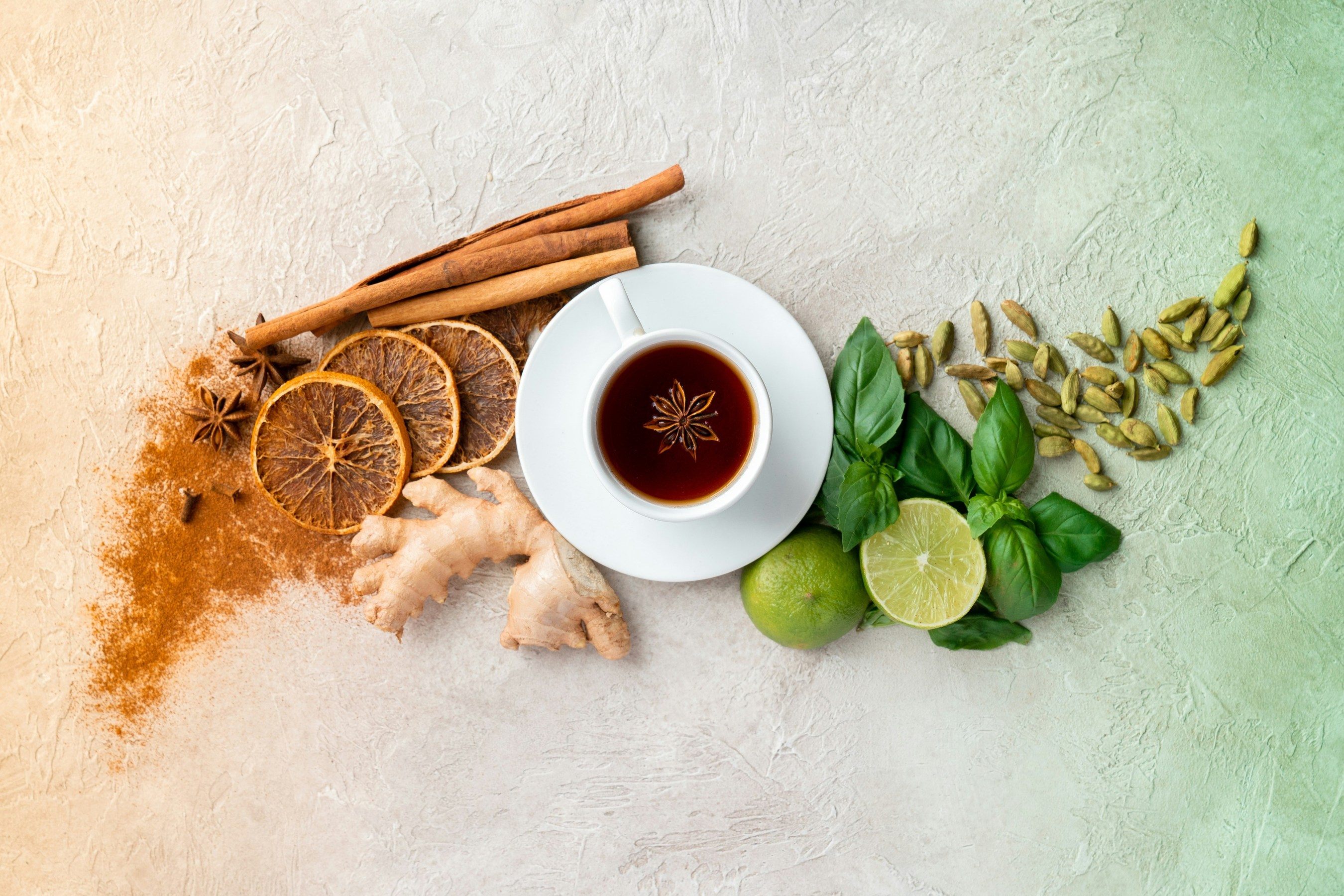Thanksgiving dinner is the meal of the year. Whether you like to eat each side dish separately or are all about that perfect combination bite of turkey, stuffing, gravy, and cranberry sauce, we can all agree that it’s impossible not to indulge. And I’m here to say, go for it! It’s not every day that you get to choose between pumpkin, pecan, AND apple pie! Chinese Medicine is all about moderation, even moderation in moderation. The richness of Thanksgiving food, combined with the volume of intake, leads to, what we call in Chinese Medicine, food stagnation (aka a food coma). So, for the biggest eating day of the year, here are some recommendations on how to prepare and ward off days of ingestion.
Prepare Your Stomach
Before the eating marathon begins, have a glass of warm water and lemon juice. From an Eastern perspective, the sourness of the lemon stimulates the liver to aid in digestion. Western research has shown it does this by boosting gastric enzymes and encouraging peristalsis. Other great options include digestive bitters, digestive enzymes, or a prebiotic. Also, you don’t want to skip breakfast and arrive at dinner hungry because it will increase your chances of overeating, so choose a breakfast that’s easy to digest to save your digestive strength for the main event.
Eat slow
A Thanksgiving feast takes hours and sometimes even days to prepare, so show your appreciation by eating slowly and enjoying the conversation around you. Properly chewing aids in the digestive process by increasing enzyme-rich salvia, and of course, making food smaller for the stomach to metabolize more easily.
[related-content]
Go for a walk after dinner
Try to resist the urge to crawl onto the couch, instead gather the team and go for a 30-minute walk to aid digestion. The organs in Chinese Medicine most closely related to digestion are the stomach and spleen. The meridians for the stomach and spleen run the length of the legs, as well as acupuncture points that stimulate the Large and Small Intestines. Walking activates their Qi to improve digestion. Western research has shown walking after a meal helps regulate blood sugar and improves the rate of digestion with fewer instances of heartburn, bloating, and acid reflux.
Give yourself an abdominal massage
Give yourself some self-love with a grownup belly rub. Start with light yet firm pressure near your belly button and make clockwise circles that slowly get larger to cover the abdomen. You’re following the natural movement of food from the ascending colon, to the transverse colon, and finally the descending colon. You’ll also be stimulating some of the most powerful acupuncture points for improving digestion. Feel free to massage deeper if you like more pressure, or feel like there is a blockage in the abdomen.
Chinese Herbs and at-home herbal remedies
And if all else fails, Chinese Medicine has a classic “food stagnation” formula called Bao He Wan for after the meal. Its English translation is “preserve harmony,” and it does that by reducing bloating, regurgitation, and bowel changes following overacting. Another patent formula that is wonderful for food stagnation, and drinking too much alcohol are Culing Pills.
If you don’t have either of those options on hand, you can make your own digestive tea by adding some spices and herbs from around the house to hot water. Some of our favorites are cardamom pods (crushed), fresh ginger, lemon peels, hawthorn berries, and cinnamon sticks.

Get acupuncture, obviously!
Whether the boat isn’t floating down the river or it’s speeding by too fast, if digestion hasn’t rebounded after a few days, come in for an acupuncture tune-up. Acupuncture and Chinese Medicine offers customized solutions for digestive upset, and your practitioner should have you feeling like yourself in no time…or in time for December’s Holiday parties!
The post Savoring the Flavors: A Guide to Enjoying Every Bite first appeared on The Yinova Center.